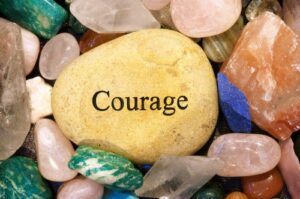Can Anger Be Your Ally?
We, as human beings, pursue happiness and joy. We naturally gravitate towards things and people that elicit positive emotions. There’s no question that we prefer to experience our positive emotions, and naturally avoid the negative ones. Some might wonder, “Is our goal to reach a point in life when we only experience positive emotions? Or do our negative emotions serve an essential purpose?”
The negative emotions, chiefly anger, keep us alive by having a correctional function. Consider the last time you got angry. Matthew Hutson, author of Beyond Happiness: The Upside of Feeling Down, says “Anger results when we feel undervalued.” Anger is an alert that warns us when something needs to change. Anger can often prompt us to do and say things that we wouldn’t normally do, which leads us to feel as though we are out of control. Consequently, most of us develop one of two unhealthy relationships with anger. Either we give anger full control, allowing it to progress into rage and hijack our body and our relationships. Or, as soon as anger shows its face, we’re already beating it back and trying to drown out its voice it with optimistic denial. There is a better, more balanced, relationship to be had with anger, however. Once we understand the function of anger, we can more easily hear its message without letting it control us.
Mindful Management
There is a wealth of information on the art of anger management. If you struggle with anger management, mindfulness is a wonderful place to start. Lama Surya Das explains some simple steps to mindful anger-management and intentional responsiveness. If you want to wade deeper into the water of the mindful anger practice, consider reading Mindful Anger: A Pathway to Emotional Freedom by Andrea Brandt.
Listen & Learn
Since anger serves a useful function, it possesses intrinsic value to our daily decision making. Once you’ve learned to manage the initial urgency of anger, practice listening to its present function. Anger is often alerting us that something needs to change: either externally or internally, or both. We can adjust our expectations and grow while also asserting a need for external change. As you listen to the message anger has, remember to remain mindful!
Effective Expression
When we experience anger, we develop a surplus of energy within our body that needs to be expressed. With all of this mindful management of anger, we still need a constructive outlet for our anger. Make a list of activities you can engage in that appropriately release your angry energy. Exercise is a wonderful way to release a build-up of angry energy. If you’re tight on time, consider just doing ten push-up’s and returning to your day. You can learn to channel built-up energy into your daily tasks, as well. For instance, tearing up a newspaper before you recycle it. Once you’ve physically expressed your anger in a constructive way, you will have more composure and clarity as you take steps to assert yourself. When finding healthy ways to express angry energy, be aware of not allowing it to become harmful to you or anyone else. Read up on tips for healthy conflict resolution to improve how you collaborate with others for change.
When anger next appears, remember to work consciously to change your relationship to it. If you are able to see that anger has value and function, you will be able to operate as a more whole-hearted and effective person.
Good luck in the journey!
Lesley Anne Mendonça
M.A., LMFT-Associate, LPC-Intern
Supervised by Dr. Amy Fuller, LMFT-S, LPC-S










